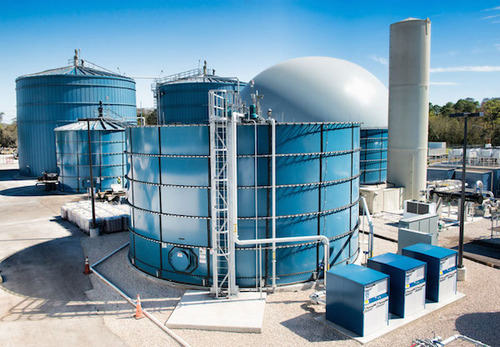Harvest Power Rebuilds Topsoil & Produces Energy with Ecology
The people from Harvest Power believe solutions to our planet’s energy and pollution problems must be addressed first at a grass roots level, “where people and organizations can work together in a climate of mutual responsibility and trust.”
This company, founded in 2009, and with operations now spread through the United States and Canada, appears to be taking this philosophy to heart in how it regards over 500 million tons of organic waste that are produced each year in North America.

Harvest Power’s nearly 450 employees refer to their sustainable methodologies as the ‘Power-of-We’: “It’s a simple concept – we are part of a larger system, and if we all recognize this, and participate to the best of our abilities, the system will get better.”
Facing global issues of soil degradation, along with a growing demand for food and clean energy that is staggering, CEO Paul Sellew how he views organic waste and managing it as an asset. He simplifies Harvest Power’s approach to waste management and anaerobic digestion, likening it to the process that takes place in a cow’s stomach.
“People call that biomimicry,” says Sellew, “which is taking a natural process that’s evolved over millions of years, and we apply modern engineering to that: natural microbes break down organic materials and turn it into biogas.”
Add vast quantities of compost to this list, a natural formula for reviving thinning topsoils.
The company’s huge anaerobic digester in Orlando, Florida is considered to be one of the most innovative anaerobic digestion projects of its kind in North America. The facility provides waste management through its specially engineered design to co-digest biosolids with food wastes from local resorts, restaurants, grocery stores, hotels, sports arenas, golf courses and the food processing community. Some waste from Disney World is brought to the facility, including the Ritz-Carlton and JW Marriott hotels at Grande Lakes Orlando.
The Florida facility has a capacity of 130,000 tons per year with 5.4MW combined heat-and-power output. This is a significant amount of clean energy being produced. In Vancouver, Canada goals of environmental management and sustainability are being tackled. According to the Harvest Power website, these issues are being addressed:
- Landfills have become more expensive, more distant, and are filling to capacity with waste that future generations will have to handle
- The Zero Waste Challenge has set landfill diversion goals that cannot be me using only current recycling and diversion strategies
- Communities are seeking sustainable alternatives to fossil fuels
- Farms, gardens, nurseries and stormwater control projects demand high-quality, nutrient-rich soil and compost products
Harvest reports it currently manages over 2 million tons of organic material through 30 operating sites in North America. In addition, the company produces nearly 65,000 megawatt-hours per year of heat and power generating capacity and sells nearly 33 million bags of soil, mulch and fertilizer products to agricultural producers and landscapers annually.
Harvest has targeted creating a more sustainable future through helping communities it operates with to better manage and beneficially re-use their organic waste.
Considering some 500 million tons of organic materials are produced in North America each year, while landfill availability declines, Harvest Power has what appears to be a timely and very beneficial business model. To support this model, the company has a management team with extensive experience in composting, renewable energy, supply chain management, engineering, law and finance.
